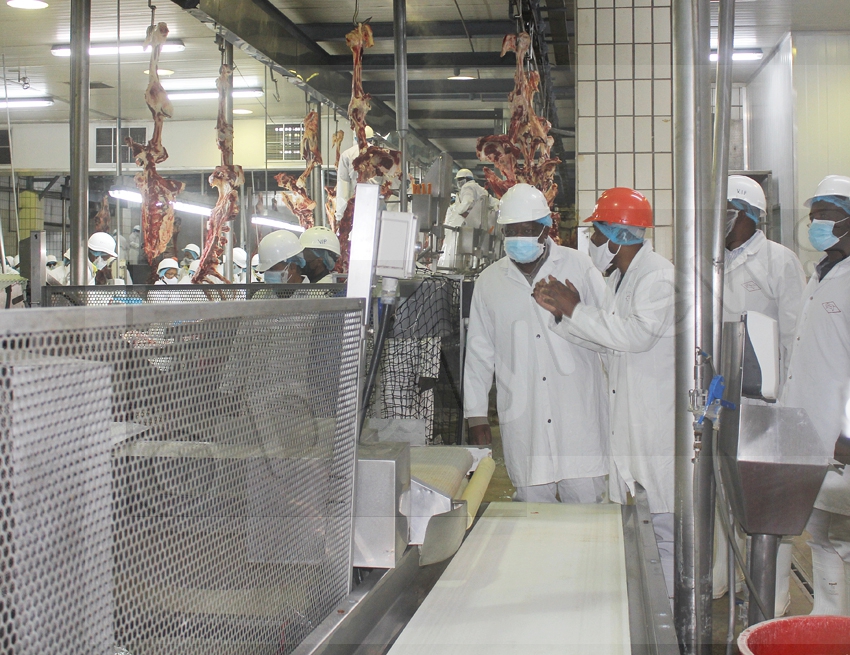Botswana records slight increase in milk production
03 Mar 2022
Botswana has recorded a slight increase in the annual milk production, Minister of Agricultural Development and Food Security, Mr Karabo Gare has said.
Presenting the ministry’s 2022/2023 financial year budget estimates to Parliament on Wednesday, Mr Gare said the annual milk production increased from over 5.3m litres in April last year to about 7.3m litres by February this year.
He, however, pointed that the increase was still way below the annual national milk demand of 65 million litres.
“The increase is attributed to increase in dairy cattle numbers.
The annual demand is 65m litres and the deficit is augmented by importation from neighbouring countries,” he said.
Mr Gare said the ministry would buy more semen and sell it at subsidised prices to dairy farmers in order to further increase milk production.
He proposed a total of over P2.4bn as budget estimates for the ministry for the 2022/2023 financial year.
He said the estimates comprised over P1.4bn recurrent expenditure and P959 million development budget.
He said over P399m of the recurrent expenditure would be spent on four parastatals under the ministry, being the Botswana University of Agriculture and Natural Resources (BUAN), Botswana Agricultural Marketing Board (BAMB), Botswana Meat Commission (BMC) - Maun, and the National Research and Development Institute (NARDI).
He added that over P1.4bn would be spent on departments under the ministry.
Mr Gare said P265 million of the development budget would be spent on projects under the ministry’s headquarters, while crop production would get P341.8m.
The minister further said P70m would be allocated for agricultural research, while BUAN would get P131.8m, animal production P108m for LIMID project.
Highlighting the performance of the ministry in the current financial year, Mr Gare said the ministry supported 5 122 projects through LIMID from April to December 2021.
He said the projects consisted smallstock, Tswana chickens, livestock water development, animal husbandry, fodder support and abattoirs projects.
The minister explained that the number of small stock projects supported was 4 836, Tswana chicken projects were 158, while animal husbandry and fodder support projects were 109.
He added that there were 19 water development projects.
He said the ministry was working to resuscitate the Ncojane and Phuduhudu artificial insemination camps to be able to receive cattle in the 2022/2023 breeding season.
He said pork production stood at 479 tonnes per annum against the national demand of 1 500 tonnes per annum.
He said the piggery sub-sector was facing challenges such as high feed prices, inadequate slaughter facilities and unorganised market.
“To address this the ministry will introduce artificial insemination in pigs, introduce another breed line to improve breed variability and also form clusters,” he said.
Regarding the poultry sector, he said it had progressed well and was now self-sufficient.
Mr Gare said honey production recorded 13.5 tonnes in 2021, which was just 21.8 per cent of the 62 tonnes national annual demand.
He said the deficit was augmented by importation of honey from neighbouring countries.
“The low honey production is attributable to effects of climate change such as prolonged drought, high temperatures and erratic rainfalls.
My ministry is implementing a bee-keeping training project under the Economic Recovery and Transformation Plan at Ramatlabama Artificial Insemination Centre,” he said.
Concerning animal disease control, the minister said the situation of Foot and Mouth Disease (FMD) had remained stable with no outbreaks reported in the FMD free zones since 2011.
He said the ministry would intensify public education on beef measles control in the next financial year.
He said that was because prevalence of beef measles in carcasses had remained at six per cent against the ministry’s target of four per cent.
On crop production, Mr Gare said the ministry had developed a new transformative rain-fed programme aimed at subsidising agriculture financing and building rain-fed agriculture production systems.
“The programme emphasis would be on cluster production and revamping of existing farmers committees,” he said.
He said the programme was aimed to commence in the 2022/2023 cropping season.
Minister Gare said the country had recorded a significant increase in vegetable and fruit production with the annual production at 53 983 tonnes in 2019/2020 and 75 448 tonnes in 2020/2021.
He however said it was still below the annual national demand of 20 000 tonnes.
Mr Gare said the ministry would support the sub-sector by subsidising production requirements. ends
Source : BOPA
Author : Jeremiah Sejabosigo
Location : GABORONE
Event : Parliament
Date : 03 Mar 2022



